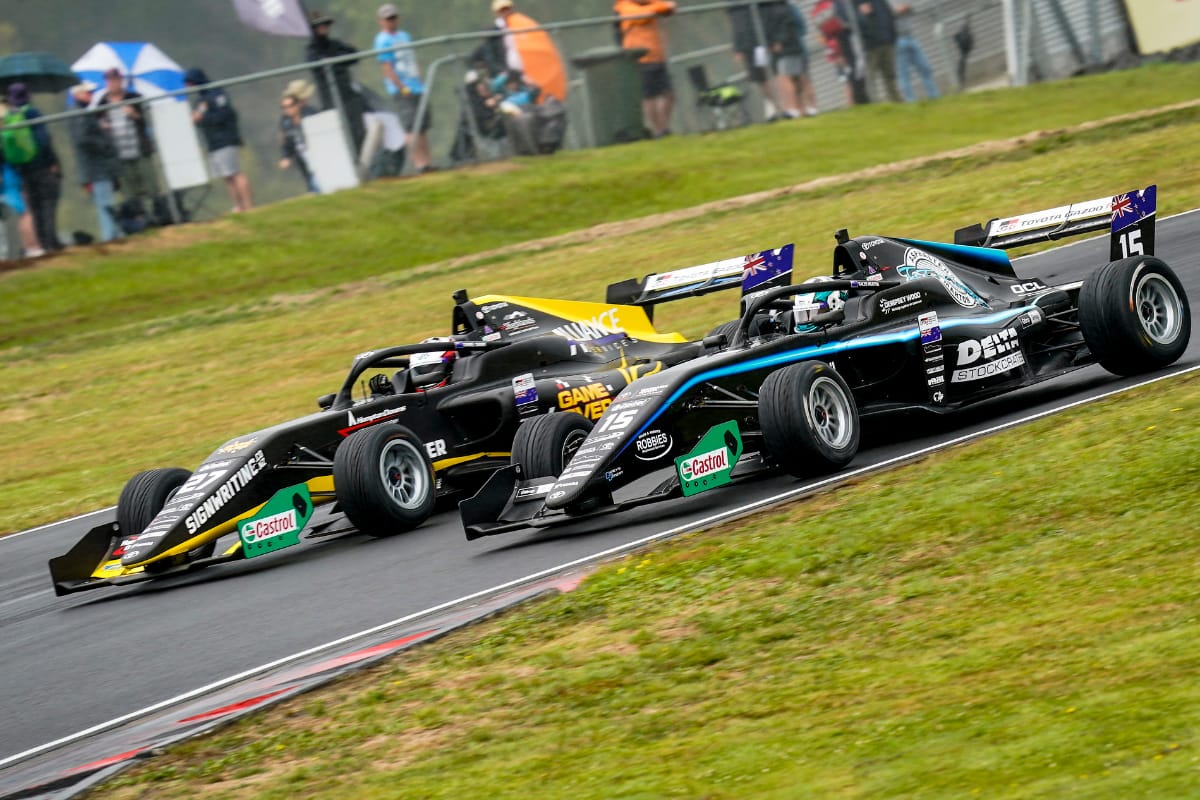Formula Regional Oceania Embraces Synthetic Fuel for a Sustainable Future
In a groundbreaking move, Formula Regional Oceania announces its switch to synthetic fuel for the upcoming season, marking a significant step towards sustainable motorsport.

The world of motorsport is witnessing a revolutionary shift with Formula Regional Oceania's latest announcement that its fleet of Tatuus FT-60 cars will be powered by synthetic fuel in the upcoming season. This pioneering decision by series organizer Toyota Gazoo Racing New Zealand (TGR NZ) in collaboration with P1 Fuels not only sets a new environmental standard in racing but also places the series at the forefront of sustainable motorsport innovations.
The transition to synthetic fuel has been a meticulously planned endeavor by TGR NZ. After extensive dyno and track testing with every Toyota-powered car set to compete in 2024, the results have been overwhelmingly positive. The switch to synthetic fuel required only “minimal changes” in the mapping of the engines, ensuring no reliability issues, a testament to the adaptability and forward-thinking approach of the series.
The upcoming season opener of Formula Regional Oceania will be a historic moment as it becomes the first of the FIA’s FRegional series to utilize a 100% fossil-free fuel. The synthetic fuel, developed by P1, offers a remarkable 77.4% reduction in carbon dioxide output compared to traditional petrol. This eco-friendly fuel is produced by converting alcohol into synthetic green hydrocarbons, resulting in an equal balance of CO2 savings during production and release during combustion.
Nicolas Caillol, TGR NZ’s motorsport manager, expressed his satisfaction with the test program, confirming the cars' speed and reliability with the P1 fuel. Caillol’s statement reflects the series’ ambition for carbon neutrality and its commitment to setting new environmental standards in New Zealand motorsport.
This move by Formula Regional Oceania is part of a larger trend in motorsport towards sustainable practices. Formula 2 and the FIA Formula 3 Championship have already made a switch to a partially sustainable fuel supplied by Aramco, which utilizes direct air capture technology. Additionally, French Formula 4 has been pioneering the use of Repsol’s biofuel since 2022, showcasing a global shift in racing fuel sources.
The adoption of synthetic fuel in Formula Regional Oceania is more than a technical modification; it represents a significant stride in the evolution of motorsport. It underscores the sport's responsibility towards environmental stewardship and aligns with global efforts to combat climate change. This initiative not only benefits the environment but also serves as a catalyst for technological innovation, potentially influencing broader automotive industry practices.
As the motorsport community gears up for the new season of Formula Regional Oceania, the excitement is palpable not just for the racing action but for the positive environmental impact it promises. This landmark decision is a beacon of hope for a more sustainable and ecologically conscious future in motorsport, setting an example for other racing series around the world to follow.
In conclusion, the switch to synthetic fuel by Formula Regional Oceania marks a pivotal moment in the history of motorsport. It demonstrates a commitment to innovation, environmental responsibility, and a sustainable future, making the series a trailblazer in the global push towards greener racing practices.




